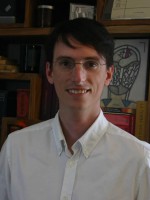
is a post doctoral research fellow at the University of Trieste, Italy, where he graduated in 2007 with full marks cum laude. In 2008 he attended a Specialization and Advanced Training Course in Parliamentary Law at the University of Firenze, supported by the Italian Parliament. In 2011 he earned his PhD in Constitutional law at the University of Ferrara with a dissertation on “Constitutional identity and the supreme principles of the legal order”. His PhD thesis was awarded with the IUSS Prize for the best thesis of the year. From 2012 to 2014 he has been a postdoctoral fellow at the University of Udine. He developed national and international experience, working on international projects at the University of Udine and thanks to academic residences at the Goethe University in Frankfurt a.M. (Germany), and at the University of Regensburg (Germany). He authored or coauthored more than twenty academic publications on multilevel constitutionalism, electoral law, principle of equality, immunity law. His current main research interests are focused on constitutional reforms, limits to constitutional revision, and constitutional conflicts between EU and national legal orders
Research Project
The aim of this research project will be to find an alternative route to approach constitutional identity of the EU Member States, answering the following basic question: “are the actions of the EU and national constitutional players -others than the Courts- influenced by the need to protect the members states' constitutional identity?”.
Constitutional identity has mostly been approached from a judicial perspective. This project aims at investigating constitutional identity from a new perspective, which focuses on the contribution of non judicial actors to the definition of the concept.
The investigation of a sort of “living constitutional identity” will pass through the examination of flexibility mechanisms adopted in the EU in order to build a “differentiated integration”. A central argument of this project is that, in the European context, a connection can be established between, on the one hand, the protection of constitutional identity and, on the other hand, the praxis of introducing various mechanisms of flexibility at the EU level affecting the degree of integration of the Member States in the Union, which give way to a certain degree of “differentiated integration” of Member States within the EU.
Through my research, I will try to address the following questions:
1. Is it possible to identify a more concrete shape of constitutional identity of Member States through the investigation of flexibility mechanisms recently adopted by EU Institutions?
2. Are national governments “using” EU as an argument to break the constitutional identities of their own states?